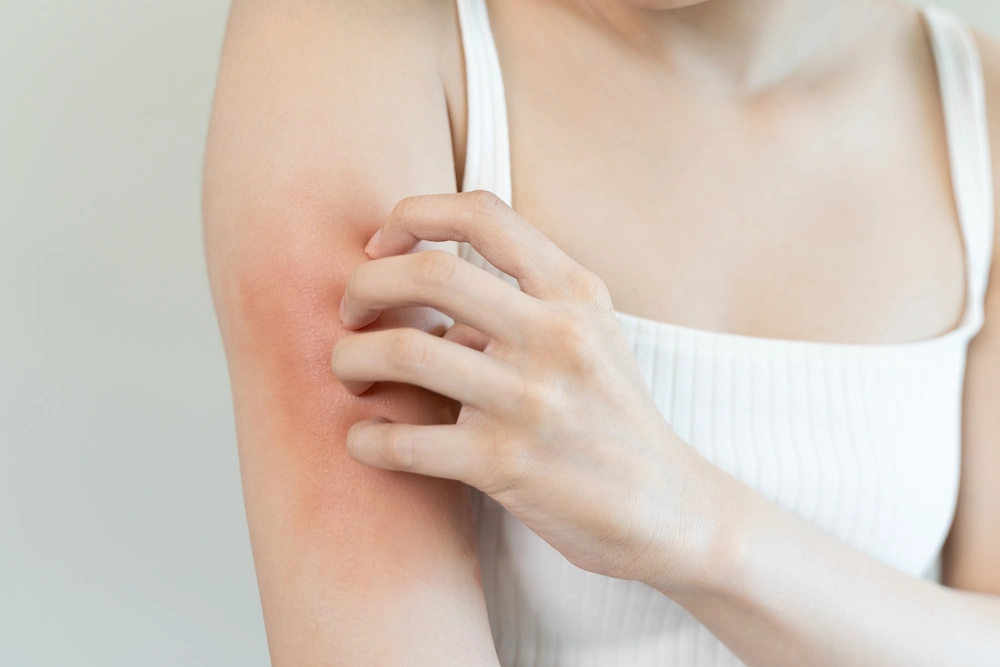Posted on:
How to Treat Eczema Flare-Ups

Few skin problems can be as annoying and uncomfortable as eczema. Fortunately, there are a number of treatment options to help reduce the itchiness and swelling that come with this health condition.
Dr. Carmelo Plateroti and our skilled staff at Plateroti Dermatology in Templeton, California, provide top-notch treatment for both dermatological and aesthetic skin issues. With our unique integrative protocols that use both Western medicine and holistic practices we can help with concerns ranging from eczema and skin cancer to wrinkles, sagging skin, hair loss, and more.
Eczema
Eczema causes patches of skin to become red, dry, and itchy. Skin can also be flaky and, in severe cases, crack open and bleed. It is not contagious and often results from contact with an irritant or allergen. There are multiple types of eczema, including atopic dermatitis and contact dermatitis among others.
Causes
A number of factors can cause eczema, including a family history and an immune system that overreacts to small irritants. Many aspects of our environment and even emotional triggers can also set off a flare up.
Diagnosis
An eczema diagnosis is typically made through a physical exam, which includes a detailed evaluation of the skin. Since eczema can appear similar to other skin conditions, an allergy test and/or blood tests may also be recommended. A skin biopsy can help identify the specific type of dermatitis.
Triggers
Triggers can vary from person-to-person, but some are more common than others. Certain soaps and detergents as well as clothing materials and fabrics like wool can cause issues. Skin care products and makeup can also bother some individuals.
Extreme temperatures, humid weather, and significant sweating can be triggers as can spending a long time in water. Pollen, dust mites, and pet dander can affect some people as well as environmental pollutants such as smoke. Stress, anxiety, or depression can also contribute to a flare up.
Treatment options
Although there is no cure for eczema, a number of treatment options are available. These can include topical creams such as corticosteroids and short periods of exposure to UV light, known as phototherapy. Oral or injected immunosuppressants and biologic medication are other possibilities. Lifestyle modifications such as lukewarm baths, baths with bleach, and using strong moisturizers daily may also provide relief to sufferers. Avoiding known triggers is key as well.
If you’re suffering with itchy inflamed skin and need relief, we can help. Just click our request button, or call us at (805) 434 2821 today to make an appointment.